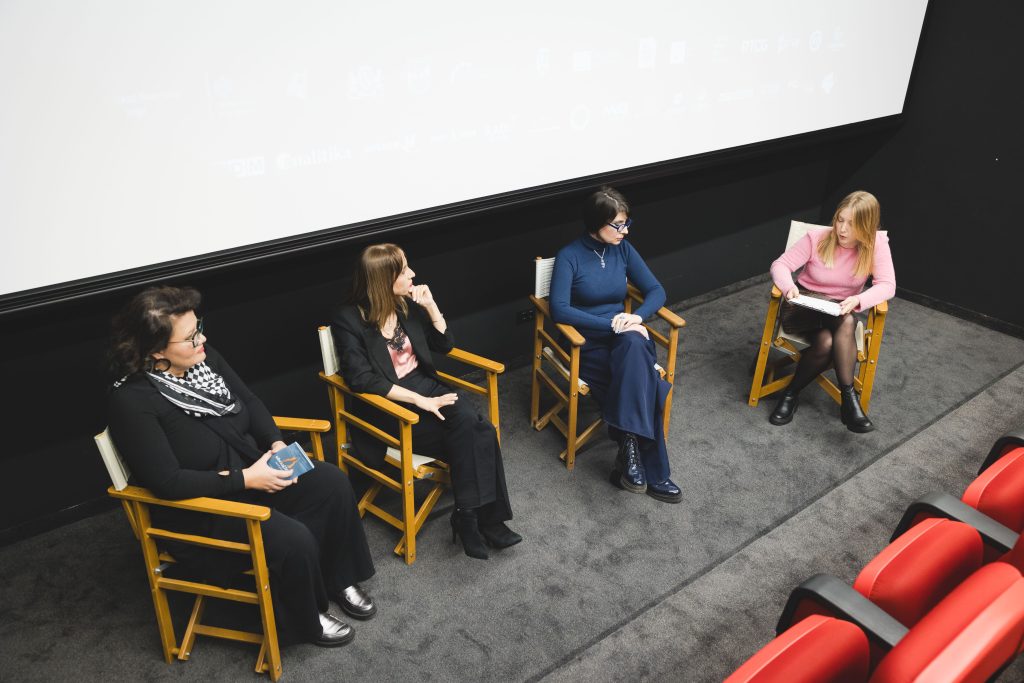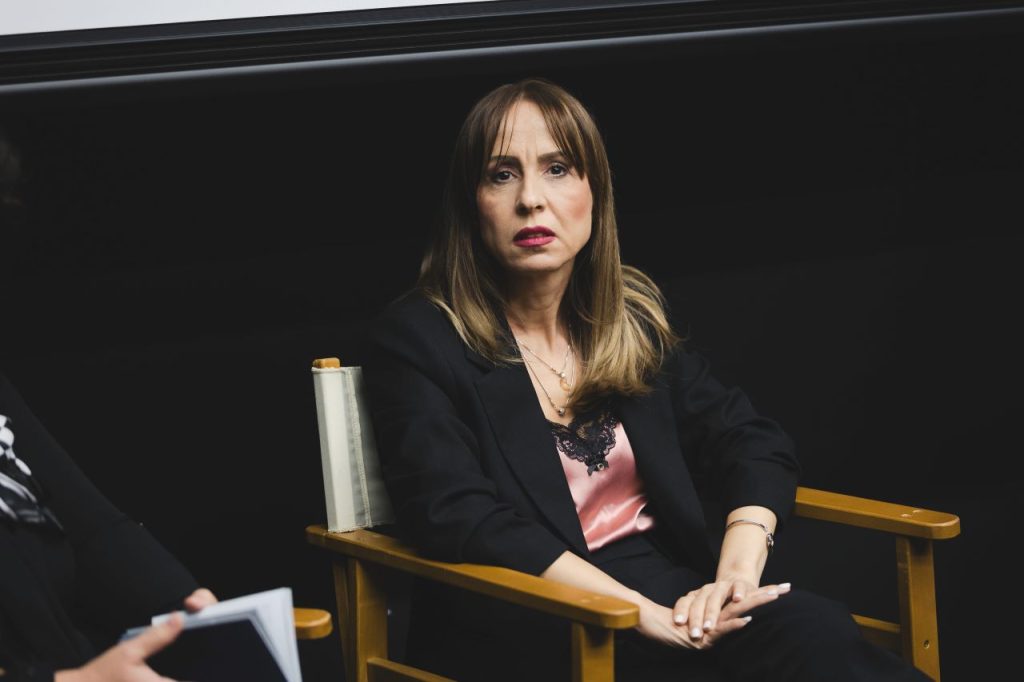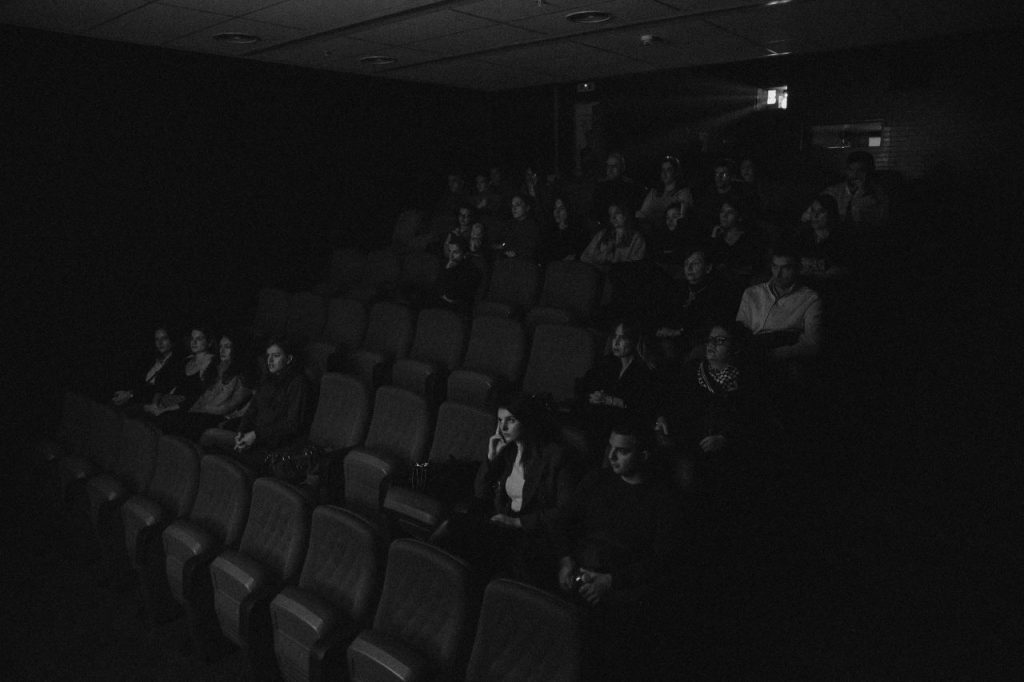It is crucial to identify and combat sexist and sensationalist language in the media, as this supports women in public spaces who are increasingly targeted by such attacks, further limiting their influence in decision-making processes, as underlined during a night panel discussion following the screening of the film “Black Box Diaries” at the Montenegrin Human Rights Film Festival FAST FORWARD 2024, organized by the Centre for Civic Education (CCE).
The panel discussion, titled “Women in the Media: The Fight for Voice and Image?”, featured journalist and programme coordinator of the Montenegro Media Institute Vesna Rajković Nenadić, journalist Ivana Boljević, and Montenegrin Language and Literature professor at SMŠ Golubovci Svetlana Jovetić Koprivica.
Svetlana Jovetić Koprivica praised the efforts of CCE and the FAST FORWARD Festival in raising awareness about the importance of amplifying women’s voices in society. “These valuable efforts contribute to making women’s voices louder, but it must be emphasized that the decision-making power in Montenegro is still predominantly in the hands of men,” she noted. Jovetić Koprivica highlighted issues such as selective abortions, lower pay for women, the devaluation of professions perceived as “female,” femicide, and the absence of positive discrimination in favour of women. “Language reflects the psychology of society. It’s challenging to expect acceptance of gender-sensitive language in a setting where the suffix -ica is perceived as diminutive and pejorative. A doctor, director, professor, or judge is still valued more than their female counterparts—doctorica, direktorica, profesorica, or sutkinja. On the other hand, gender-sensitive language is easily applied to less prestigious professions in the social hierarchy,” she explained. “Journalism must always work in the public interest, which includes advocating for a fairer, more inclusive, and well-ordered society,” she concluded.
“Women today face greater challenges than before, as they deal with traditional problems alongside those stemming from the online sphere,” said Vesna Rajković Nenadić, addressing the position of women in public spaces, particularly in the context of media and social networks. She pointed out that social networks are often unregulated and expressed concern about the inadequate response of media regulatory bodies. “I am not sure how or why they fail to act when they should. That’s a question that needs to be addressed to them,” she stated. Rajković Nenadić also referenced case law from the European Court of Human Rights from this field, highlighting rulings that could serve as a guide for improving media practices. “Media are key to raising awareness and protecting women’s rights, but progress requires greater accountability from both regulatory bodies and media outlets. Institutions must be stronger, and media more sensitive, to protect women in public spaces and ensure their equality,” she emphasized.
Ivana Boljević reflected on how the public and media treat victims of sexual violence. “The latest case shifted all attention to the victim and her perceived ‘weakness.’ The line between helping a victim and condemning her is very thin, and sensationalism remains a persistent problem,” she warned. She added that the film, which served as the basis for the discussion, is an excellent example of how politics can intertwine with such cases. Boljević also highlighted the lengthy court processes as an additional obstacle in the fight for justice for victims of sexual violence. She stressed the need for systemic improvements in the judiciary, regulation of the media landscape, and increased public sensitivity toward victims. “Only with stronger institutions and a responsible media approach can a fairer and safer society be built,” she concluded.
The panel was organized as part of the project “Against Gender Stereotypes and Sexism”, supported by the Ministry of Human and Minority Rights of Montenegro.
Nikola Đurašević, Programme Associate



